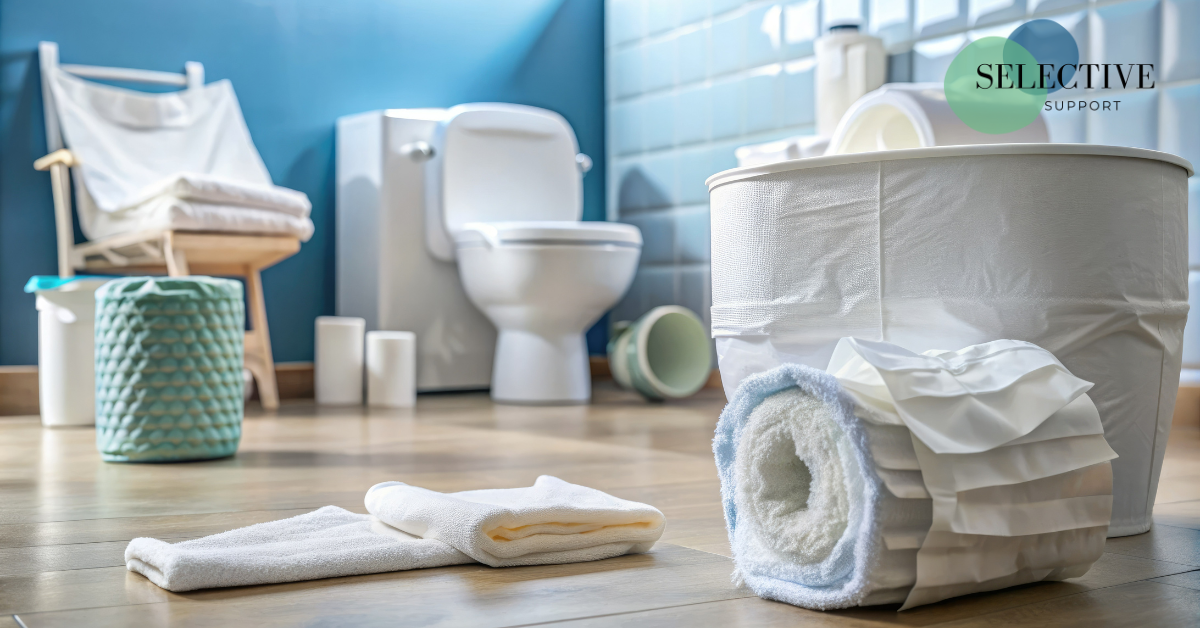NDIS Consumables Guide: Maximizing Your Benefits
Navigating the complexities of disability can be daunting for many Australians. And for that reason, the National Disability Insurance Scheme (NDIS) was introduced to provide vital support and improve the quality of life for people with significant disabilities.
This introduction will provide an NDIS consumables guide and will explore how NDIS transforms lives, and why understanding its benefits, such as NDIS consumables, is crucial for participants.
What is NDIS?
The National Disability Insurance Scheme (NDIS) is a groundbreaking initiative by the Australian government aimed at providing comprehensive support to individuals with permanent and significant disabilities.
The goal of NDIS is to offer tailored assistance that empowers individuals to achieve their personal, educational, and professional goals.
This support includes funding for various services and products, including consumables, which play a crucial role in daily assistance and maintaining the health and well-being of participants.
What are NDIS Consumables?
NDIS consumables are everyday items that NDIS participants can purchase using their funding to help manage their disability and improve their daily living.
These items are considered essential for the participant’s ongoing health, wellbeing, and personal care.
Consumables are part of the core supports budget, which means they are designed to support everyday needs and must be directly related to a person’s disability.
Types of NDIS Consumables
For those wondering “What can i buy under NDIS consumables”, NDIS encompasses a broad range of products, each catering to different needs and aspects of disability management. Here’s a detailed look at the NDIS consumables list:
-
Personal Care Items
These include products like incontinence pads, catheters, and skin care items that are necessary for daily personal hygiene and care. Personal care consumables ensure that participants can maintain their dignity and independence in managing personal hygiene.
-
Low-Cost Assistive Technologies
Items such as non-slip mats, handheld reachers, and modified cutlery are also some of NDIS consumables examples that fall under this category. These technologies assist individuals in performing daily tasks that would otherwise be challenging, enhancing their ability to live independently.
-
Nutritional Supplements
For participants with dietary restrictions or specific nutritional needs due to their condition, the NDIS covers specialised nutritional supplements. These are essential for maintaining health and wellness, especially when regular diet alone cannot meet their nutritional requirements.
-
Wound Care Supplies
This includes bandages, dressings, and related medical supplies necessary for the treatment and management of wounds. These consumables are crucial for participants who require regular wound care as part of their condition management.
-
Continence Aids
Continence aids are vital for individuals who need assistance managing continence due to their disability. This category includes products like disposable and washable urinary and bowel incontinence aids that help maintain hygiene and comfort.
Each category of consumables plays a critical role in supporting NDIS participants by providing them with the necessary tools to manage their disabilities effectively.
The aim is not only to support physical health but also to enhance participants’ confidence and ability to engage socially and economically in their communities.
Understanding the wide array of consumables available can help participants and their families make informed decisions about what products are best suited to their needs and how they can access these through their NDIS plan. This ensures that every participant can utilise their funding effectively to improve their overall quality of life.

How to Access NDIS Consumables
Accessing NDIS consumables involves a clear understanding of how the NDIS funding works and what steps participants need to take to utilise their allocated budget effectively.
This section will guide you through the process to ensure you can access the consumables necessary for your daily needs.
Understanding Your NDIS Plan
- Firstly, it’s important to understand your NDIS plan. Your plan will have a specific budget for consumables, listed under the core supports.
- This budget is meant for everyday use to help manage your disability. Knowing the details of what your plan covers is crucial for making informed purchasing decisions.
Working with Your Plan Manager or Coordinator
- If you have a plan manager or are utilising NDIS support coordination, they can assist you in understanding how to use your funds for consumables.
- These professionals provide advice and support in managing your funding, including sourcing and purchasing consumables.
Finding Approved Providers
- To purchase consumables, you will need to find approved NDIS consumables providers who supply the products you need.
- The NDIS has a list of registered providers who meet the required standards to ensure quality and reliability. You can search for approved NDIS consumables providers through the NDIS portal or ask for recommendations from your plan manager.
Purchasing Consumables
- Once you have identified the right providers, you can start purchasing your consumables. Some items may require a quote or prior approval, especially if they are high in cost.
- For everyday consumables, you can generally purchase them directly once they fall within your plan’s budget guidelines.
Keeping Records
- It is essential to keep receipts and records of all your purchases. This documentation helps in managing your budget and ensures you have proof of purchases when you review your plan with the NDIS for future assessments or audits.
Navigating With Disability Support Services
While NDIS consumables provide essential support for daily activities, integrating these resources with comprehensive disability support services can significantly enhance their effectiveness and impact.
This integration ensures that individuals not only have the tools they need but also the ongoing support to use them effectively in their journey toward independence and improved quality of life.
Disability support workers play a pivotal role in ensuring that NDIS approved consumables are used effectively to improve your quality of life. They provide hands-on assistance and expert guidance, making daily routines easier and enhancing your ability to live independently:
- Personal Care and Daily Tasks: Disability support workers assist with personal care needs and daily household tasks, utilising NDIS consumables to ensure these activities are managed efficiently and comfortably.
- Healthcare Management: From handling medical equipment to assisting with medication management, they ensure that all healthcare-related consumables are used correctly to support your health and well-being.
- Emotional and Social Support: Beyond physical support, they provide emotional and social interaction, helping you to use communicative aids and other tools to engage with your community and maintain social connections.
Connect With Our Disability Support Workers Today
At Selective Support, our Disability Support Workers are not just helpers but trained professionals dedicated to enhancing the independence and well-being of individuals with disabilities.
They play a crucial role in providing hands-on support that spans from personal care and household tasks to managing healthcare needs and offering emotional support.
Our workers are equipped to handle diverse needs with compassion and professionalism, ensuring that each participant receives tailored support designed to enhance their ability to live independently.
They pride themselves on building strong, supportive relationships with participants, helping them navigate daily challenges and enhance their quality of life.
Our workers are committed to making your daily routines manageable, ensuring that you feel supported and at ease, allowing you to focus more on your personal goals and less on managing your disability.


